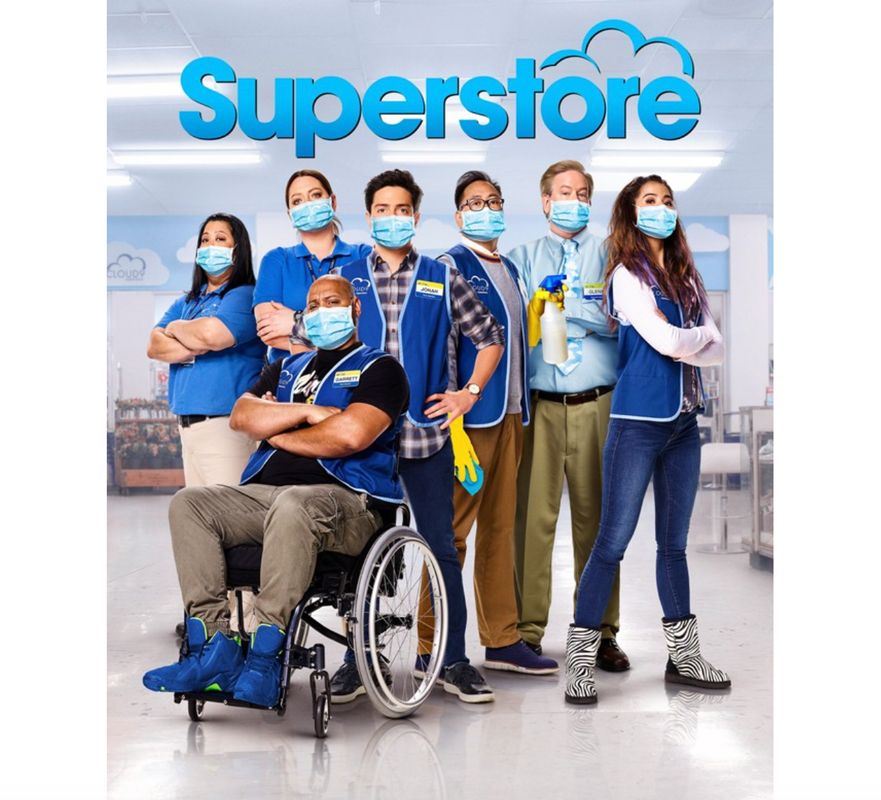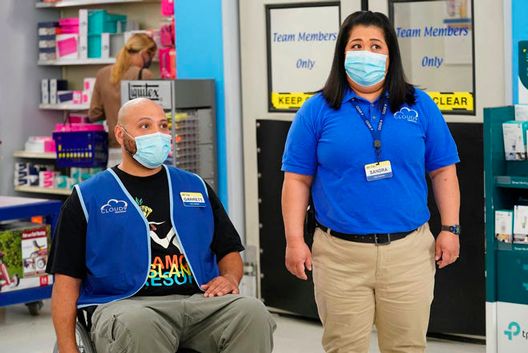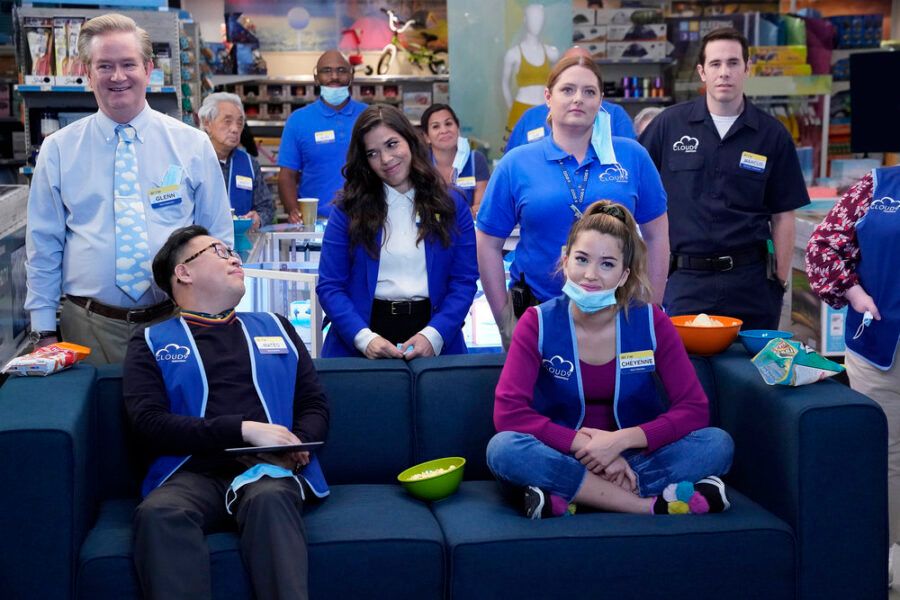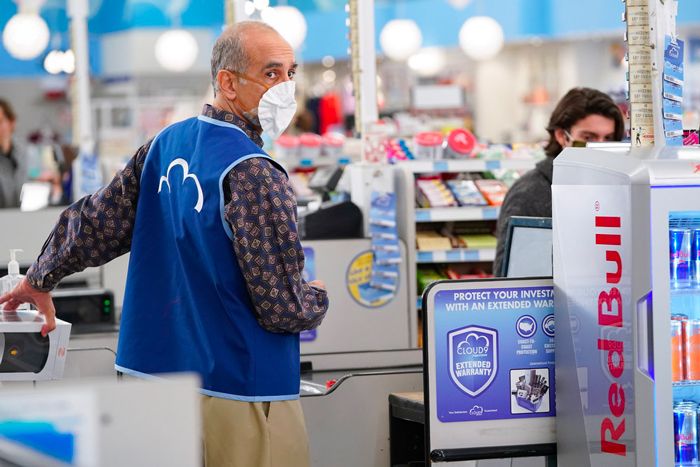While the COVID-19 pandemic has affected nations worldwide, it is perhaps a gross overstatement to assume that everyone has been affected equally. Many comments of the famous and wealthy, such as the Imagine cover sung by celebrities and other distasteful comments, read as tone-deaf in a climate where millions of ordinary people suffer under the weight of isolation, job loss, debt and ever-increasing health risks. Superstore (2015 - 2021) doesn’t shy away from this narrative; rather, it relies on it.

Superstore, created by Justin Spitzer and produced by NBC, tells the experiences of employees working at Store 1217 of Cloud 9, a fictional hypermarket brand, in St. Louis, Louisiana. The employees themselves are a diverse group, with characters that are people of colour, members of the LGBTQ community, and disabled. Together, they grapple with the day-to-day grind of crazed customers, corporate mismanagement and sales that bring in cash for the company and chaos for them.
Superstore delves into a number of polemic issues, such as immigration, racism, feminism, classism, and capitalist greed, by making them real and accessible. Yet even with its discussion of difficult topics, the working-class sitcom continues to deliver heartwarming and funny stories about the workers’ jobs with much-needed nuance.

Unlike most other television and film productions made and released during the global pandemic, the show could not feign ignorance about the crisis in favour of universalizing its context or transcending time for longevity. Rather, Superstore remained true to reality, even as it entered its final season.
“This was a show where going escapist just didn’t make sense,” Superstore writer Owen Ellickson said to Vulture. “Our characters would be people in a very interesting, tough spot.”
Superstore’s Season 6 premiere catches up to where the audience is. It runs through the beginning months of the pandemic, with the floor workers discovering the pandemic with the rough-blow of a COVID-positive Tom Hanks. The show moves forward with jokes about binge-watching series, the toilet paper shortages in the US and anti-maskers while still bringing awareness to the negligence of Corporate. All the while, much of the dialogue in the store takes place with masks on, and the employees largely abide by COVID regulations.

As corporate calls front-line workers “heroes” while refusing them any PPE or additional guidelines that ensure their safety, floor workers and management are left to their own devices. Hilarity ensues with makeshift masks from teddy bear bandanas and crass T-shirts, vodka sanitising sprays, gardening gloves and shower curtain dividers at tills.
Corporate’s initial safety supplies only protect products against looting — a gross overreaction to the Black Lives Matter protests. Time and time again, the show exposes corporate’s actions for what they are - a kind of violence. When faced with mid-pandemic promotions in Episode 4, Garret responds with, “[Y]ou’ve got to look at this from Corporate’s perspective. They love money, and they don’t care if we die.”

The show tackles the ever-increasing wealth disparity through the economic downturn that has only boosted sales for billionaires, while their workers risked their lives for minimum wage. In the face of disease, the worker’s marginality only becomes more pronounced. The most underpaid and precarious jobs are reserved for the most vulnerable, those living at intersections of marginal identity — racial minorities, undocumented workers and women. By recognising the working-class struggle amidst the pandemic, Superstore relays the need for the United Nations Sustainable Development Goals for Reduced Inequalities and Decent Work and Economic Growth.
“It’s always been a little bit of a show about underdogs, people at the mercy of these big forces that are well beyond their control. In some ways, COVID fits in pretty naturally with that,” Elliksen said. “COVID is just another thing that these people are struggling against.”
We are not all in this together; the fallacy of solidarity allows those who have always been privileged to remain so. The rest of us are seemingly on our own. Rather than leaving us behind, Superstore endears its viewers by sharing in the struggles of the pandemic. Some of us have to risk our lives just to live — and that truth deserves to be seen by us all.
Superstore can be streamed on NBC.com, Netflix, Hulu and Showmax.
